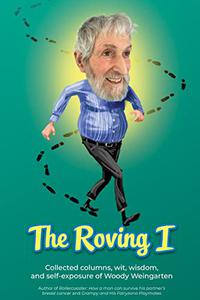 |
| Rep. Jamie Raskin |
Thursday, December 29, 2022
Maryland Congressman who led second Trump impeachment trial reports that he has lymphoma
Tuesday, December 27, 2022
Despite drop in cancer death rates, docs worry about continued high numbers among Blacks
A new study indicates that, despite a drop, cancer deaths in Black people remain higher than those of every other category.
Lindsey Tanner's recent Associated Press story notes that the death rates among Blacks have steadily declined — as they have for all Americans for the past two decades — apparently because of lower smoking rates and advances in early detection and treatment.
But the continued high rates among Blacks remain a concern.
 |
| Wayne Lawrence |
Carla Williams, a Ph.D. and a Howard University expert in cancer-related health disparities, who had no role in the research, also was quote regarding the finding: "It's showing that we simply can't rely on medical care as a way to address and eliminate the disparities."
Tanner's article also says "an earlier report from the American Cancer Society found the racial gap was narrowing mostly because of a bigger decline" in smoking. The largest dips, it postulates, "were in lung cancer among Black men and stomach cancer in Black women."
The piece cites the following data: "Rates among Black people fell each year from 1999 to 2019, from 359 cancer deaths per 100,000 to 239 deaths per 100,000, according to the report."
 |
| Carla Williams, Ph.D. |
Why the emphasis on a college degree? Because, the AP story quotes Brawley again, "evidence suggests that people with college degrees are more likely to exercise, not be obese, and to seek medical care when they notice changes that could signal cancer."'
More information about racial inequities and disease can be found in "Rollercoaster: How a man can survive his partner's breast cancer," a VitalityPress book that I, Woody Weingarten, aimed at male caregivers.
Tuesday, December 20, 2022
Button, button, who's got the button? Read this for the answer, and learn about 3 readable books
The Roving I, a mostly light-hearted book that was just released, does just that — focus on family and friends. But its 70 first-person columns also include some that feature serious stuff, and numerous humorous others that showcase overheard conversational tidbits and one-liners.
Sounds like a perfect holiday gift to me, and it’s not too late to order one (or two, or more). I have a vested interest, of course, since I cherry-picked the essays from an archive of many more that I, Woody Weingarten, wrote over more than a dozen years.
Highlights, among other recollections in the collection, are an amusing tale about my pre-wife earning a slot in my Little Black Book, an upbeat story of a friend turning Parkinson’s Disease into an asset, an awesome family drama about a woman carrying her sister’s “miracle baby” inside her for five months, an inspirational adventure about a Cambodian slave-labor camp escapee becoming a successful U.S. entrepreneur, and a peek at legendary comic Robin Williams transforming himself into a talking vagina.
Button, button, who’s got the button? That’s a refrain from my childhood (not mentioned in the book), but it certainly resonates today. Chanukah’s not over yet, and Christmas is in the offing. So, check out my website — http://woodyweingarten.com — and push the appropriate buy-button to purchase The Roving I.
Or push one for Grampy and His Fairyzona Playmates, a whimsical fantasy co-written by my 8-year-old granddaughter and aimed at 6- to 10-year-olds. Or Rollercoaster: How a man can survive his partner’s breast cancer, which details how my partner and I learned to cope, and which can benefit anyone who knows someone with any life-threatening disease.
It's easy to find what my website labels fantasy, facts, and florilegium (an opaque, unfamiliar word meaning collection). Just go to http://woodyweingarten.com and select your favorite book outlet.
Sunday, December 18, 2022
Experimental skin cancer vaccine shows promise when used with Keytruda, new study says
 |
| Stéphane Bancel |
Tuesday, December 13, 2022
New book provides ‘wit, wisdom, self-exposure’ of Woody Weingarten, author of its 70 columns
 |
| Woody Weingarten enjoys his new hardcover. |


